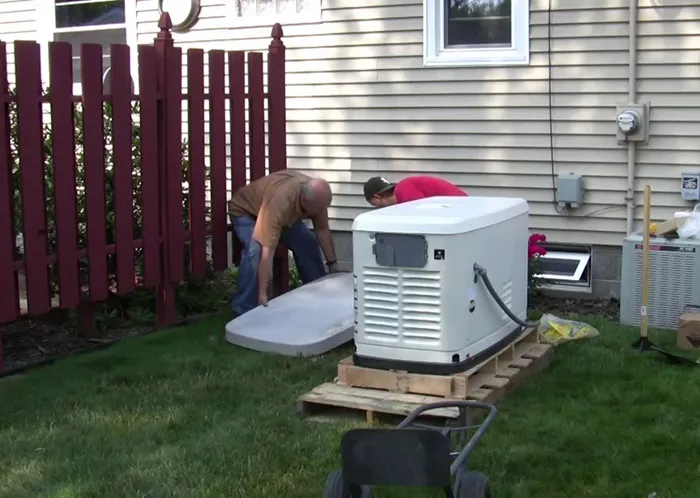Choosing the right generator for your mobile home is crucial for ensuring reliable power during outages, trips, or off-grid living. With various types, sizes, and features available, selecting the best one requires understanding your power needs, fuel options, and safety considerations.
This guide will help you find the perfect generator by covering key factors such as wattage requirements, fuel efficiency, noise levels, and essential safety features.
Understanding Your Power Needs
Before buying a generator, you must determine how much power your mobile home requires. Generators are rated in watts (W) or kilowatts (kW), and choosing the right capacity prevents overloading or underpowering your electrical system.
Calculating Your Power Requirements
- Start by listing essential appliances (refrigerator, lights, HVAC, microwave, etc.).
- Check the wattage of each device (usually found on labels or manuals).
- Add up the running watts (continuous power needed).
- Account for starting watts (some appliances, like air conditioners, need extra power at startup).
Types of Generators for Mobile Homes
There are three main types of generators suitable for mobile homes:
Portable Generators
Pros: Affordable, easy to move, good for occasional use.
Cons: Require manual setup, noisy, must be stored with fuel.
Best for: Short trips or backup power during outages.
Inverter Generators
Pros: Quiet, fuel-efficient, produce clean power (safe for electronics).
Cons: Lower power output, more expensive than standard portables.
Best for: Camping or powering sensitive devices like laptops and TVs.
Standby Generators
Pros: Automatic operation, high power output, permanent installation.
Cons: Expensive, requires professional installation.
Best for: Full-time mobile home living or frequent power outages.
Fuel Options: Which Is Best?
Generators run on different fuels, each with advantages and drawbacks.
Gasoline
Pros: Readily available, affordable.
Cons: Short shelf life (stabilizer needed), less efficient.
Propane (LPG)
Pros: Cleaner burning, longer shelf life, quieter.
Cons: Lower energy output, requires propane tanks.
Diesel
Pros: Fuel-efficient, long-lasting, good for heavy-duty use.
Cons: Noisy, expensive fuel, emits strong fumes.
Dual-Fuel (Gasoline + Propane)
Pros: Flexibility to switch fuels, good for emergencies.
Cons: Slightly more expensive.
Best Choice: Propane or dual-fuel for cleaner, longer-lasting power.
Key Features to Look For Automatic Voltage Regulation (AVR)J
Electric Start vs. Pull Start
- Electric start is more convenient (especially in cold weather).
- Pull start is simpler but requires manual effort.
Noise Levels
- Look for generators under 60 decibels (dB) for quiet operation.
- Inverter generators are the quietest.
Run Time & Fuel Efficiency
- A good generator should run 8–12 hours on a single tank.
- Inverter models are the most fuel-efficient.
Transfer Switch Compatibility
- Required for safely connecting to your mobile home’s electrical system.
- Prevents backfeeding (which can be dangerous).
Top Generator Recommendations for Mobile Homes
Best Portable Generator: Honda EU2200i
Power: 2,200W (surge), 1,800W (running)
Fuel: Gasoline
Noise Level: 48–57 dB
Pros: Super quiet, reliable, lightweight.
Cons: Limited power for larger RVs.
Best Inverter Generator: Champion 3400-Watt Dual Fuel
Power: 3,400W (surge), 3,000W (running)
Fuel: Gasoline or propane
Noise Level: 59 dB
Pros: Clean power, dual-fuel option, quiet.
Cons: Heavier than smaller inverters.
Best Standby Generator: Generac Guardian 7,500W
Power: 7,500W (surge), 6,000W (running)
Fuel: Natural gas or propane
Noise Level: 67 dB
Pros: Automatic operation, high power output.
Cons: Expensive, requires professional installation.
Safety Tips for Using a Generator
- Never run a generator indoors (risk of carbon monoxide poisoning).
- Use a transfer switch to avoid backfeeding the grid.
- Keep the generator dry (use a canopy if outside).
- Store fuel safely (away from heat sources).
- Perform regular maintenance (oil changes, air filter checks).
Conclusion
The best generator for your mobile home depends on your power needs, budget, and how often you use it. Portable generators are great for occasional trips, while standby units provide seamless backup power for full-time living. For most users, a dual-fuel inverter generator (3,000–4,000W) offers the best balance of power, efficiency, and safety. Always prioritize features like AVR, low noise, and fuel flexibility for the best experience.
By understanding your requirements and choosing a reliable model, you’ll ensure uninterrupted power wherever your mobile home takes you. Would you like recommendations based on a specific budget or mobile home size? Let us know in the comments!

